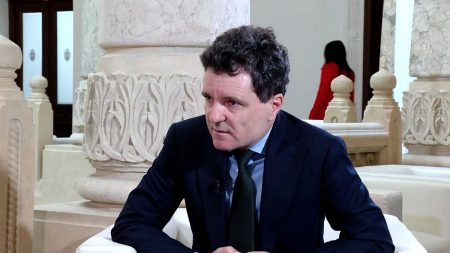The European Union’s high-tech sector, comprising over 10 million professionals and representing 5.2% of the total workforce, faces a persistent gender imbalance. Despite the crucial role of technology in driving economic growth and innovation, women remain significantly underrepresented, holding only 32.2% of high-tech jobs in 2023. This figure represents a slight decline from the previous year, highlighting the ongoing challenges in attracting and retaining women in this dynamic field. While certain regions demonstrate encouraging progress towards gender parity, the overall picture reveals a stark disparity that necessitates targeted interventions to foster a more inclusive and equitable high-tech landscape.
A closer examination of regional data reveals striking variations in female representation within the high-tech sector. While the overall EU average lags behind, certain regions stand out as beacons of progress. Remarkably, the Hungarian region of Nyugat-Dunántúl boasts a female majority in high-tech employment, with women accounting for 50.2% of the workforce. This achievement underscores the potential for creating environments conducive to female participation in technology. Two other regions, Marche in Italy (48.6%) and Észak-Magyarország in Hungary (48.1%), also demonstrate significantly higher female representation than the EU average, suggesting the influence of local factors in shaping gender dynamics within the tech industry. Conversely, regions like Thessalia in Greece, with a mere 8.3% female representation, highlight the deep-seated disparities that persist across the EU.
The disparity in female representation within the high-tech sector raises critical questions about the underlying causes and potential solutions. Several factors contribute to this imbalance, including societal stereotypes, implicit biases in recruitment and promotion processes, and a lack of female role models in leadership positions. Furthermore, the demanding work-life balance often associated with tech careers can disproportionately impact women, particularly those with caregiving responsibilities. Addressing these challenges requires a multi-pronged approach, encompassing educational initiatives to encourage girls’ interest in STEM fields, mentorship programs to support women throughout their tech careers, and policy interventions to promote equal opportunities and work-life balance.
In contrast to the focus on gender representation, an analysis of the total number of high-tech professionals employed across different regions reveals a concentration of tech hubs within certain geographical areas. Germany emerges as a dominant force, with three regions – Bavaria (476,000), North Rhine-Westphalia (466,100), and Baden-Württemberg (434,100) – boasting the highest numbers of high-tech professionals. The Ile-de-France region, encompassing Paris, also stands out as a major tech hub with 469,100 professionals. These regions likely benefit from a combination of factors, including established research and development infrastructure, strong university networks, and access to venture capital. This concentration of tech activity raises important questions about regional development and the potential for creating more evenly distributed opportunities across the EU.
The stark contrast between regions with thriving tech sectors and those with limited high-tech employment underscores the need for strategic investment and policy interventions to promote balanced regional development. Regions with fewer high-tech professionals, such as Peloponnisos and Crete in Greece, and Bolzano in Italy, all with fewer than 5,000 professionals, may face challenges in attracting investment and fostering innovation. Targeted initiatives, such as regional development funds, incentives for tech startups, and investments in digital infrastructure, could help bridge the gap and create more equitable opportunities for all regions to participate in the digital economy.
The data on high-tech employment within the EU presents a complex picture, revealing both promising developments and persistent challenges. While certain regions demonstrate remarkable progress in gender equality within the tech sector, the overall EU average remains significantly below parity. Furthermore, the concentration of high-tech employment in a few key regions highlights the need for policies that promote balanced regional development and ensure that all areas benefit from the opportunities of the digital economy. Addressing these issues requires a comprehensive approach involving governments, businesses, educational institutions, and civil society, working together to create a more inclusive, equitable, and dynamic high-tech landscape across the European Union.














